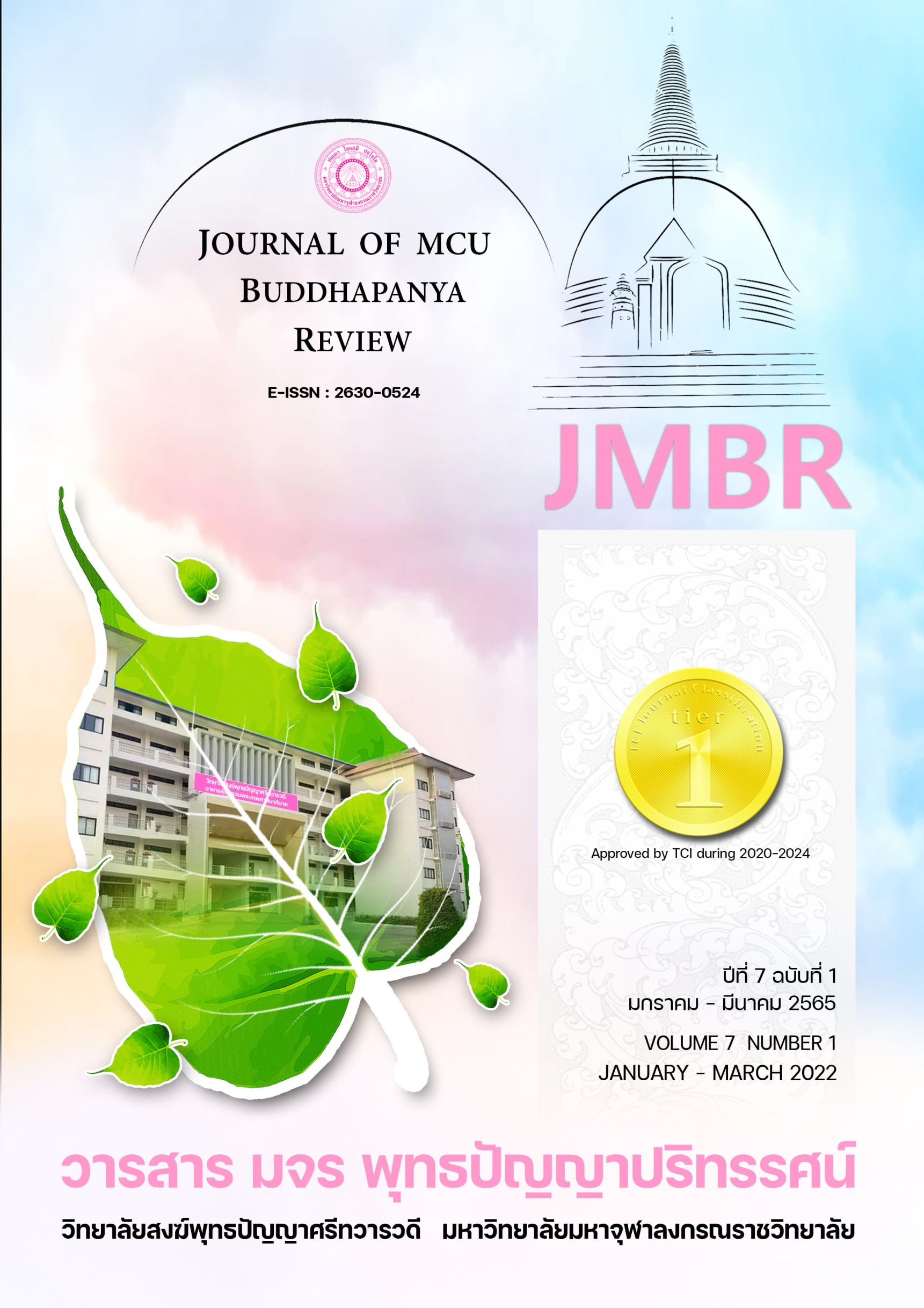การพัฒนาคุณลักษณะความรับผิดชอบ และความเคารพนับถือของนักเรียนอาชีวศึกษาทวิภาคี
DEVELOPMENT FOR RESPONSIBILITY AND RESPECTFULNESS CHARACTERISTICS OF DUAL VOCATIONAL STUDENTS
คำสำคัญ:
การพัฒนาคุณลักษณะ , ความรับผิดชอบและความเคารพนับถือ , นักเรียนอาชีวศึกษาทวิภาคีบทคัดย่อ
บทความวิจัยนี้มีวัตถุประสงค์ 1) เพื่อศึกษาปัจจัยเชิงสาเหตุของความรับผิดชอบและความเคารพนับถือ 2) เพื่อศึกษากลุ่มที่ควรได้รับการพัฒนาก่อน และปัจจัยส่งเสริมของความรับผิดชอบและความเคารพนับถือ และ 3) เพื่อตรวจสอบรูปแบบความสัมพันธ์เชิงสาเหตุของพฤติกรรมรับผิดชอบและเคารพนับถือของนักเรียน
การวิจัยนี้เป็นการวิจัยเชิงปริมาณ กลุ่มตัวอย่าง คือ นักเรียนอาชีวศึกษาทวิภาคี ระดับ ปวช. จำนวน 594 คน ไช้วิธีคัดเลือกแบบโควต้า เครื่องมือวิจัยที่ใช้เป็นแบบวัดตัวแปร 13 แบบวัด เป็นแบบวัดมาตรประเมินรวมค่า มีค่าความสัมพันธ์รายข้อกับคะแนนรวม .411-.862 ความเที่ยง ซึ่งหาโดยวิธีสัมประสิทธิ์แอลฟา (a) .848 ถึง .940 สถิติที่ใช้วิเคราะห์ข้อมูล ได้แก่ การวิเคราะห์ถดถอยพหุคูณ การทดสอบที และการวิเคราะห์เส้นทางอิทธิพล
ผลการวิจัยพบว่า
1) ปัจจัยเชิงสาเหตุ 3 กลุ่ม ร่วมกันอธิบายจิตลักษณะรับผิดชอบและเคารพนับถือของนักเรียนได้ร้อยละ 54.0 และร่วมกันอธิบายพฤติกรรมได้ร้อยละ 57.1 2) กลุ่มที่ควรได้รับการพัฒนาก่อนในพฤติกรรมรับผิดชอบและเคารพนับถือ มีกลุ่มเดียว คือ นักเรียนอายุน้อย (15-17 ปี) ปัจจัยส่งเสริมที่สำคัญมี 5 ประการ คือ ความเชื่ออำนาจในตนในความรับผิดชอบและเคารพนับถือ การเห็นแบบอย่างคนใกล้ชิด ทัศนคติต่อพฤติกรรมรับผิดชอบและเคารพนับถือ การอบรมเลี้ยงดูในครอบครัว และเหตุผลเชิงจริยธรรม และ 3) รูปแบบความสัมพันธ์เชิงสาเหตุของความรับผิดชอบและความเคารพนับถือ มีความสอดคล้องกับข้อมูลเชิงประจักษ์ อธิบายความแปรปรวนของพฤติกรรมรับผิดชอบและเคารพนับถือของนักเรียน ได้ร้อยละ 95.2 ผลการวิจัยนี้เป็นประโยชน์ต่อผู้บริหาร และผู้ที่เกี่ยวข้องกับการพัฒนาคุณลักษณะความรับผิดชอบและความเคารพนับถือของนักเรียน
เอกสารอ้างอิง
Bhanthumnavin, D. (1998). Interactionism model for research study of antecedents of behaviors and development. Thai Dental Nurse Journal, 10(2), p.105-108.
Bhanthumanvin, D. & Prachonpachanuk, P. (1977). Morality of Thai Youth. (2nd ed). Bangkok: Behavioral Science Research Institute Srinakharinwirot University.
Boonpha, S. (2020). Administrative model for the Development of sufficiency for junior high school students under Bangkok metropolitan administration. Thesis Dissertation Ph.D (Education Administration)., University of Phayao. Phayao.
Cohen, J. (1977). Statistical power analysis for the behavioral sciences. New York: Academic Press.
Faul, F., Erdfelder, E., Buchner, A. and Lang, A.G. (2009). Statistical Power Analyses Using G Power 3.1: Tests for Correlation and Regression Analyses. Behavior Research Methods, 41, p.1149-1160.
Magnusson, D, & Endler, N.S. (1977). Personality at the crossroads: Current Issues in Interactionism psychology. New Jersey: LEA Publishers.
Meekum, K. (2014). Research for scale development and validation of state-trait moral reasoning scores. Journal of Psycho-behavioral Science, The Thai Behavioral System.
Meekhun, K., & Thiammek, N. (2002). Effects of moral reasoning training on moral characteristics and moral behaviors of teachers] (Research report). National Research Council of Thailand.
Office of the Education Council. (2017). National Education Plan 2017-2036. Bangkok: Prekwan Graphic.
Office of the National Economic and Social Development Board. (2018). National Strategy 2018-2037. Bangkok: Office of the National Economic and Social Development Board.
Office of the Vocational Education Commission. (2014). Document “Integrity, Ethics, Values and Desirable Characters of Graduates according to Vocational Qualifications”. Bangkok: Office of the Vocational Education Commission.
Piaget, J. (1932). The moral judgment of the child. London Harcort, Brace.
Ruamtham, P. Chueasathuchon, C. & Chueasathuchon C. (2016). Factors Related to Behaviors Illustrating the Love of Being Thai of Prathom Suksa 6 Students at School under the Jurisdiction of Yasothon Primary Educational Service Area Office 1. Ubon Ratchathani Journal of Research and Evaluation. Vol. 5 No.2. p.38-47.
Senhom, J. (2019). Administrative Model for the Development of Self-Reliance of non-formal Education Students in Bangkok. Thesis Dissertation Ph.D (Education Administration) University of Phayao. Phayao.
Thomas Lickona. (1991). Educating for Character: How Our Schools Can Teach Respect and Responsibility. New York: Bantam.
Yussen, S. R. (1976). Moral reasoning from the perspective of others. Child Development.
ดาวน์โหลด
เผยแพร่แล้ว
รูปแบบการอ้างอิง
ฉบับ
ประเภทบทความ
สัญญาอนุญาต
ลิขสิทธิ์ (c) 2022 วารสาร มจร พุทธปัญญาปริทรรศน์

อนุญาตภายใต้เงื่อนไข Creative Commons Attribution-NonCommercial-NoDerivatives 4.0 International License.



